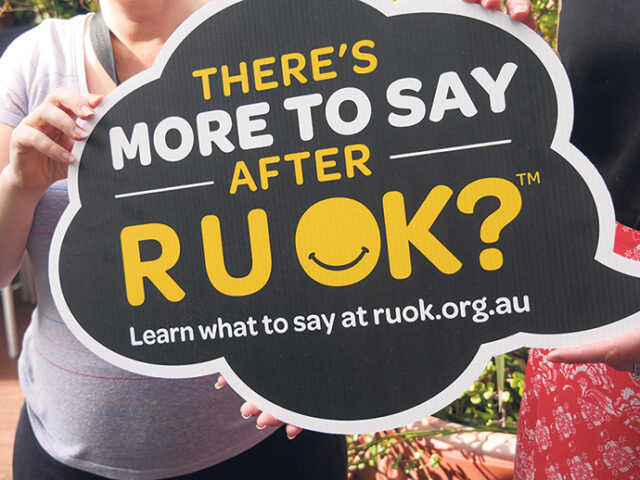Ahead of R U OK? Day on Thursday, September 9, the community is encouraged to check in with family, friends, neighbours and colleagues.
As greater Sydney deals with its 11th week of lockdown, it is more important than ever to have conversations about mental health.
Rowena Saheb was a Western Sydney University Mental Health Promotions Coordinator at Kingswood Campus for five years and now leads a suicide prevention initiative for Western Sydney Local Health District.
She is also an R U OK? Day Community Ambassador and said the messaging behind the not-for-profit organisation is so important right now.
“So many people are calling Lifeline which shows people are distressed but that they want to get help… we still have a lot to do but saying it is OK to not be OK is being more accepted in the community,” Ms Saheb said.
“We don’t have to wait to recognise distress in someone and just actively checking in on people in a meaningful way as a part of your normal day is important.”
With lockdowns preventing people in Penrith to connect in person, Ms Saheb said platforms to video chat are beneficial.
“Out of COVID we had face to face interactions that would help us identify if someone was not well but we have lost that so we need to be more proactive in reaching out,” she said.
“People could use different strategies to connect like setting a calendar invite each day to call someone different in their circle to check in and start a conversation.”
While starting a conversation might be hard, the R U OK? website has resources and steps to provide support.
“The conversation starters follow the acronym ALEC, so ask the question then listen actively to what they are saying, encourage action and let them know their feelings are valid and the last step is to check in to remind them that you care,” she said.
“If they respond that they are not OK the website also has information of what are the next steps and links to find help that suits them best.
“People sometimes feel it is not their place to ask if someone is OK but even if you ask the question and they are fine it just means you have identified yourself as a safe space for conversation in the future.”
Visit http://www.ruok.org.au.
Emily Feszczuk
A graduate of Western Sydney University, Emily covers Local, State and Federal politics for the Weekender, as well as crime and general news.

